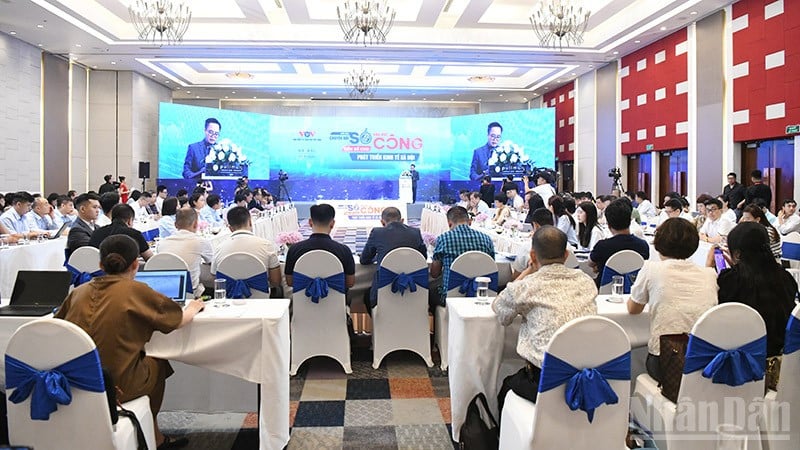
Attending the Forum were leading delegates and experts: Mr. Pham Manh Hung, Deputy General Director of Voice of Vietnam ; Le Nguyen Truong Giang, Director of the Institute of Digital Transformation Strategy (DTS); Hoang Nguyen Van, Deputy Director of the Institute of Innovation and Digital Transformation VIDTI; Nguyen Huu Thai Hoa, Deputy Director of the Tri Viet Institute IVM-VUSTA, under the Ministry of Science and Technology of Vietnam.
The presence of many scientists , experts and business representatives helped turn the event into a space for in-depth and valuable dialogue.
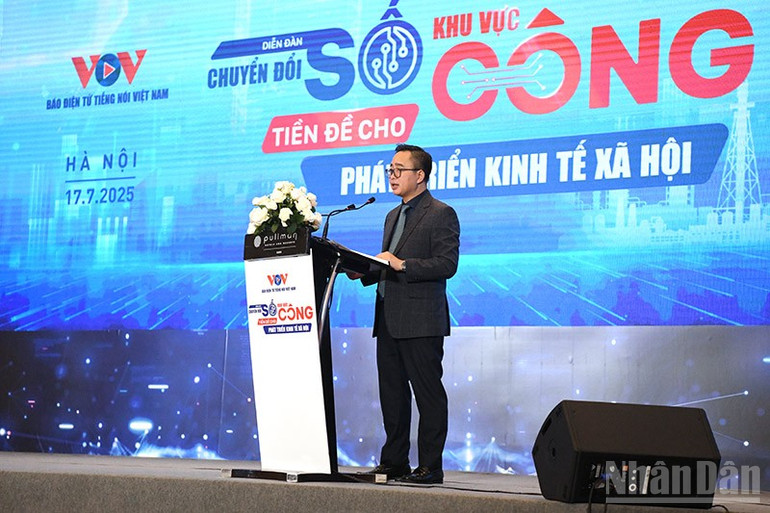
Mr. Pham Manh Hung, Deputy General Director of Voice of Vietnam, said: Digital transformation is an inevitable trend, a driving force for economic restructuring, innovation in social governance and improving efficiency in serving people and businesses.
The 13th National Party Congress also proposed fundamental solutions, focusing on development based on science and technology, innovation and digital transformation, specified in Decision No. 749/QD-TTg dated June 3, 2020 of the Prime Minister, approving the "National Digital Transformation Program to 2025, with a vision to 2030".
On December 22, 2024, General Secretary To Lam signed and issued Resolution No. 57-NQ/TW of the Politburo on breakthroughs in science, technology, innovation and national digital transformation. This Resolution clearly states that national digital transformation is the main driving force for rapidly developing modern productive forces, innovating national governance methods, developing the socio-economy, preventing the risk of falling behind, and bringing the country to breakthrough development and prosperity in the new era.
However, digital transformation in the public sector still faces many challenges such as asynchronous digital infrastructure, scattered data, lack of connectivity, limited high-quality human resources and a reluctance to innovate. The institutional system and legal policies on digital transformation are still incomplete, especially regulations on personal data protection and cybersecurity.
Mr. Hung hopes that the forum will remove these bottlenecks and bottlenecks, bringing digital transformation in the public sector closer to serving people better and contributing to rapid and sustainable socio-economic development.
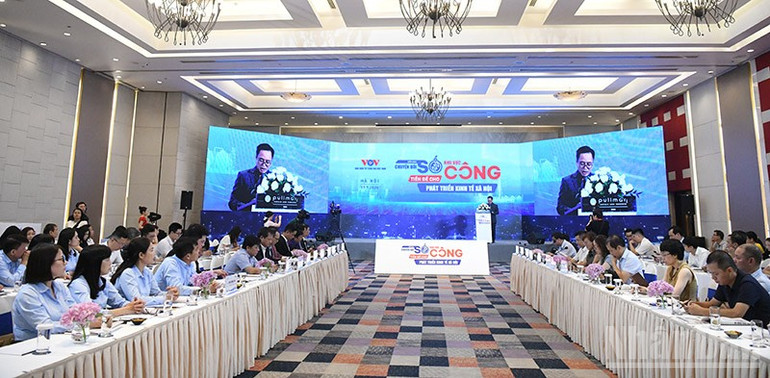
Speaking at the forum, Associate Professor, Dr. Ngo Tri Long emphasized that digital transformation in the public sector is a strategic pillar in national institutional reform, shifting from administrative management to development management.
Resolution No. 57-NQ/TW dated December 22, 2024 of the Politburo has established digital transformation, innovation and science and technology as the main drivers of growth.
Mr. Long stated that digital transformation needs to be integrated into economic-institutional reforms and its effectiveness must be measured by resource allocation, public sector productivity and market impact. He proposed improving the efficiency of digital investment, issuing a separate Digital Transformation Law or amending the Information Technology Law and establishing an independent monitoring mechanism.
Mr. Nguyen Huu Thai Hoa said that digital transformation of the public sector in Vietnam faces challenges in infrastructure and human resources but also opens up great opportunities.
Vietnam needs to learn from successful models such as Estonia, Singapore, and South Korea to build an effective, people-centered, transparent, and secure digital government. He proposed investing in infrastructure, training human resources, public-private partnerships, raising awareness, and ensuring cybersecurity.
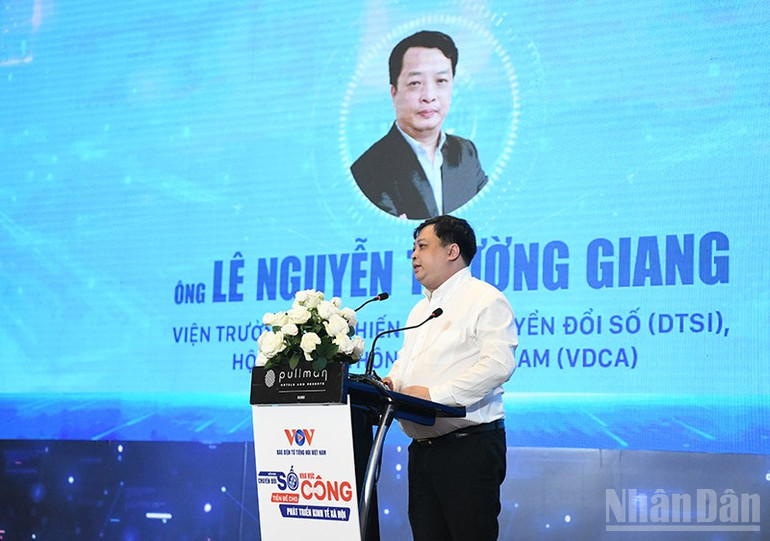
Mr. Nguyen Minh Khoi, Director of Policy & Transformation at the Tony Blair Institute for Global Change (TBI), shares his views on building comprehensive digital infrastructure, connecting technology and strategy.
Regarding digital human resources, he emphasized that ecosystem capacity is more important than quantity. He suggested that Vietnam should build a "Digital Policy Sandbox" model, integrate "Public Intelligence" into digital administration and establish a "Public Sector Digital Capacity Alliance".
Mr. Khoi affirmed that Vietnam needs to invest in the capacity to use technology to solve public sector problems, and should not chase after technology.
Policy experimentation, building technology capacity alliances, and cultivating ecosystem thinking will be the foundation for digital transformation to truly deliver social impact.
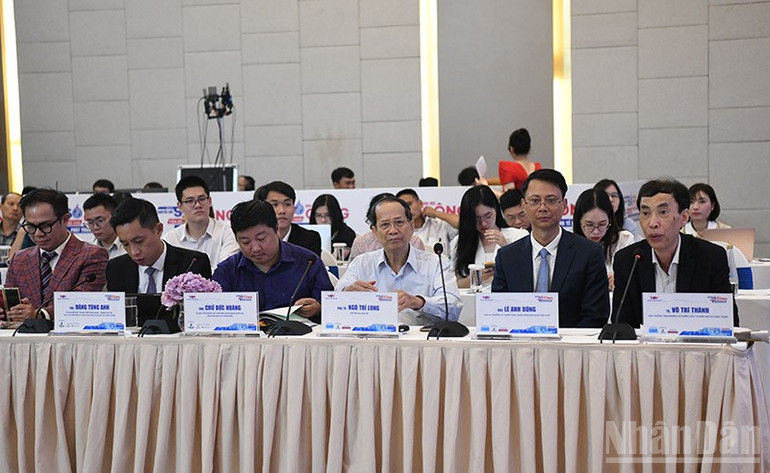
The Forum organized a seminar on "Strengthening cooperation in digital transformation in the public sector - A premise for socio-economic development", where agencies and businesses contributed many important discussions.
Opinions at the seminar agreed that only when the public sector digital transformation ecosystem is realized through concrete actions and synchronous policies, can digital transformation truly become a strategic lever, building an effective administration, better serving people and businesses, creating a solid foundation for sustainable socio-economic development in the digital age.
Source: https://nhandan.vn/chuyen-doi-so-khu-vuc-cong-cai-cach-the-che-va-nang-cao-nang-luc-quoc-gia-post894419.html




































































































Comment (0)